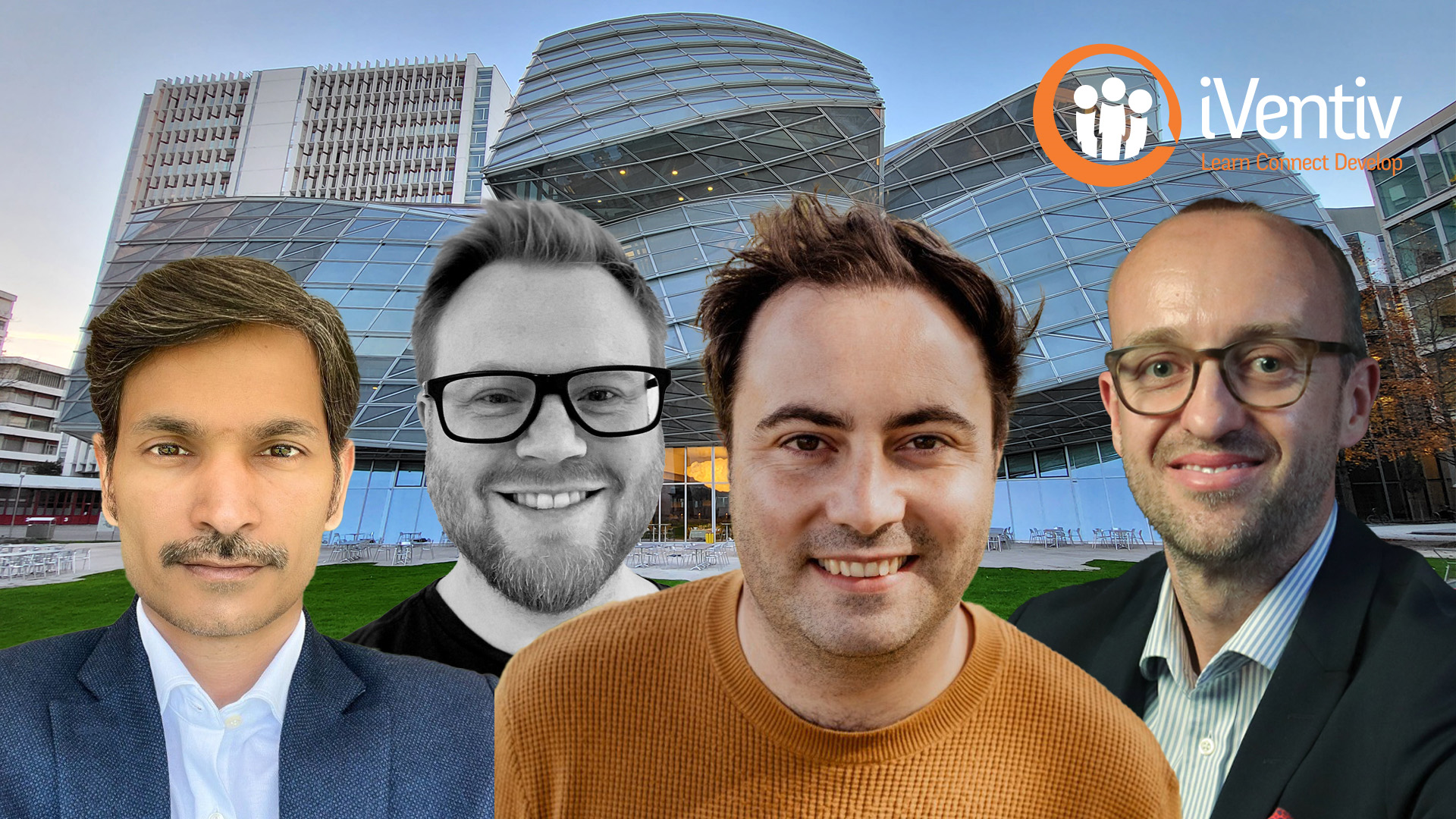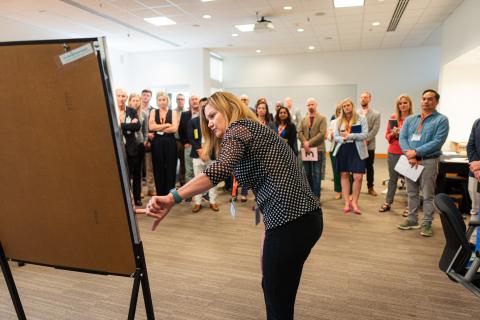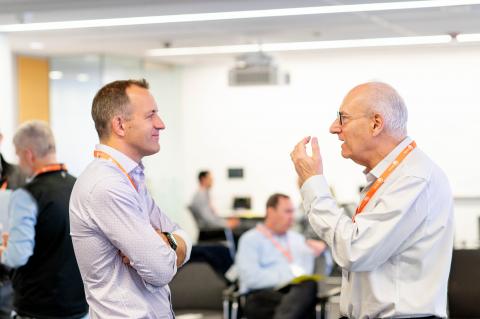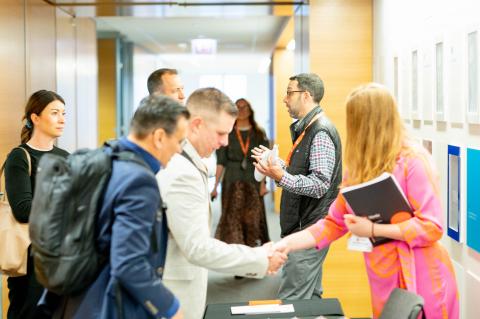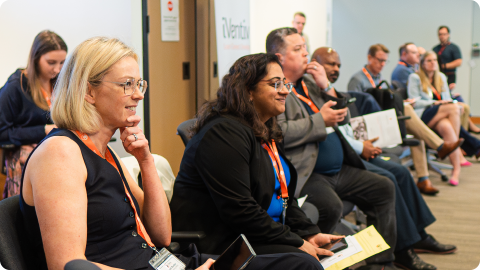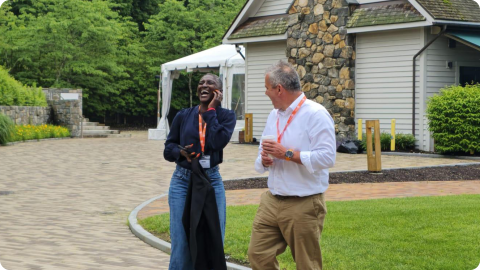Submitted by Kerry Summers on
Data-driven decision-making, personalisation, and measuring impact to enhance learner engagement were key talking points at iVentiv’s Learning Futures Basel event in October of this year.
Adam Lacey, Co-Founder of Assemble You and Host of the L&D Challenges Podcast took the time to join us for those discussions, and got into the thick it with key thought-leaders in his most recent podcast episode: How Roche and STMicroelectronics are Harnessing the Power of Data and AI in L&D.
Sam Zalcman, Global Head of Learning & Development at STMicroelectronics, Priyakumar Nair, Global Head of Learning Services at Roche, and Professor Peter Fischer, Associate Professor of Marketing & Academic Director of Creative Destruction Labs’ AI stream at HEC Paris made up this episode’s panel of distinguished leaders, and the discussions illuminated cutting-edge strategies in L&D and their implications for organisational transformation.
Join us as we listen in on a podcast that provides a wealth of insights for C-suite executives in multinational organisations, focusing on how L&D leaders are leveraging data, AI, and cultural shifts to address modern challenges. Listen to this podcast in full here.
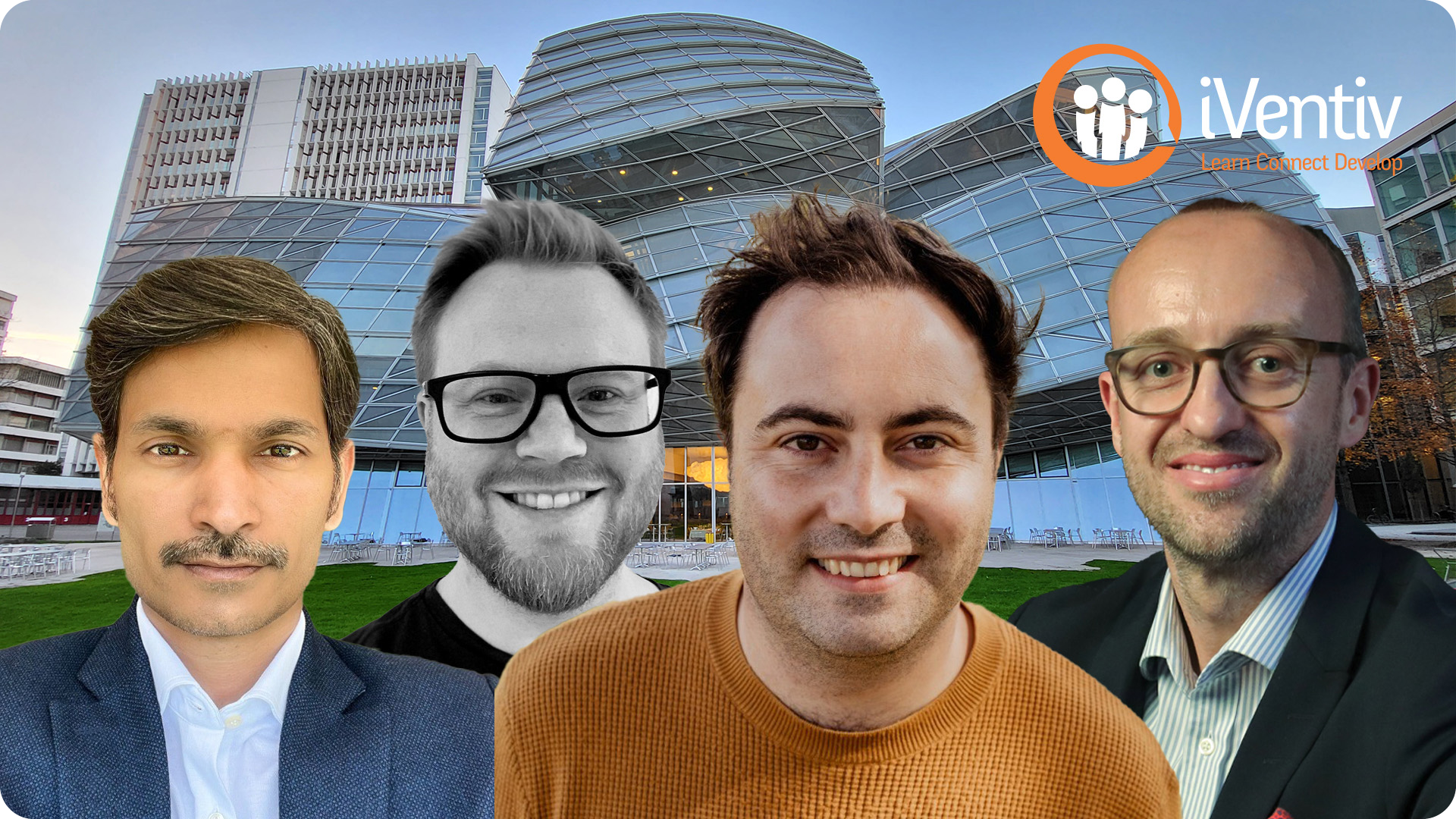
Fuelling Data-Driven Learning and Development
In a conversation around the importance of data-driven L&D, Sam Zalcman highlighted the critical role of data in workforce transformation. He underscored the challenges of accessing accurate, real-time data on employees’ skills and the importance of predictive insights to anticipate future skills gaps.
For Sam, organisations with ambitious growth strategies, real-time data serves as the ‘backbone’ for aligning talent with business objectives. He went on to explain that leveraging data is a two-step process:
Step one: Create systems to collect high-quality data on employees’ skills
This, he told Adam, requires incentivising employees to regularly update their skill profiles and collaborate with business leaders to identify emerging skills demands.
Step two: effectively utilise this data to make informed decisions about workforce planning
This means determining whether to ‘buy, build, or borrow’ talent.
By targeting specific skills gaps with agile learning solutions, Sam said that organisations can transition from reactive to strategic workforce development.  For employees, demonstrating the ‘what's in it for me’ factor—how skill data translates into career growth and development opportunities—builds trust and engagement, and for leaders, showing how L&D initiatives directly impact business outcomes ensures buy-in and alignment with organisational goals.
For employees, demonstrating the ‘what's in it for me’ factor—how skill data translates into career growth and development opportunities—builds trust and engagement, and for leaders, showing how L&D initiatives directly impact business outcomes ensures buy-in and alignment with organisational goals.
Enhancing Learning Effectiveness Through Data Governance
Optimising LMS’ and governance to improve learning experiences and outcomes was Priyakumar Nair’s focus. He pointed out to Adam that large organisations often grapple with data quality issues in their LMS, such as redundant or outdated content. These inefficiencies, he said, erode trust in learning systems and hinder employees from finding relevant resources, ultimately impacting their professional growth.
To address this, he told Adam about how Roche has implemented robust data governance practices – his team centralises the approval process for new learning content, ensuring it meets quality and relevance standards before being added to the system. This is an approach that he says helps maintain a ‘streamlined and accessible library’ of learning materials while reducing content duplication.

Priyakumar also highlighted the importance of aligning learning solutions with business needs through collaboration between learning partners and instructional designers. By understanding specific challenges faced by business units, these teams, he said, create tailored learning journeys that deliver measurable impact.
For Priyakumar, the ultimate goal here, is to balance global standardisation with the flexibility to address local nuances, fostering a ‘unified yet adaptable’ learning culture.
Leveraging AI for Transformative Learning
Professor Peter Fischer delved into the potential of AI to revolutionise learning and decision-making in organisations. As a marketing academic specialising in AI adoption, he advocated for a strategic approach to implementing AI tools within L&D frameworks.
He stressed to Adam the importance of starting small, using pilot projects to demonstrate tangible benefits, and scaling successes across the organisation. He went on to explain that AI can serve two critical roles in L&D:
- Enhancing the creation and delivery of learning content
- Enabling employees to adopt AI tools for their specific job functions
Generative AI tools like ChatGPT, he said, can expedite content development and curation, while AI-powered video production platforms such as Synthesia make training materials more accessible across languages and regions.
However, Peter cautioned against a one size-fits-all approach to AI training.
A critical takeaway from his discussion was the need for transparency and organisational buy-in when adopting AI. Leaders, he said to Adam, should create a culture where AI-driven projects are visible, celebrated, and openly shared, fostering collaboration and innovation.
He also encouraged organisations to embrace imperfection, noting that even incremental improvements from AI implementations can yield significant benefits.
Culture, Collaboration, and Strategic Vision
Across the three interviews with STMicroelectronics, Roche, and HEC Paris, recurring themes emerged
- The importance of cultivating a culture of learning
- The role of collaboration in driving innovation
- The necessity of a clear strategic vision
Both Sam and Priyakumar underscored the link between a positive learning culture and employee engagement. By providing opportunities for growth and emphasising the value of learning, organisations, they say, can tap into employees’ intrinsic motivations and align them with corporate objectives.
Peter highlighted the broader implications of AI and data in shaping organisational culture. He argued that the ability to learn alongside machines—harnessing their capabilities while understanding their limitations—will be a defining characteristic of successful organisations in the coming years.
All three speakers emphasised the need for executive leadership to champion these initiatives. From aligning L&D strategies with business outcomes to investing in advanced technologies, the role of the C-suite is pivotal in driving transformational change.
Transforming Learning and Development for the Future
The insights shared in this episode of the L&D Challenges Podcast underscore the evolving role of L&D in addressing complex organisational challenges. By harnessing data, embracing AI, and fostering a culture of collaboration and continuous learning, multinational companies can position themselves for sustainable growth and innovation.
For C-suite executives, the message is clear: investing in robust L&D strategies is no longer optional—it is a strategic imperative.
Listen to this podcast in full here.
Frequently Asked Questions
What role does data play in modern Learning and Development?
Data is foundational for modern L&D, enabling organisations to align workforce capabilities with business objectives. As discussed by Sam Zalcman, Global Head of L&D at STMicroelectronics, data provides predictive insights to anticipate future skills gaps and supports strategic workforce planning. Accurate, real-time data, he says, helps organisations transition from reactive to proactive approaches, such as determining whether to 'buy, build, or borrow' talent.
How can organisations improve data quality in their Learning Management Systems?
Priyakumar Nair, Global Head of Learning Services at Roche, emphasised that data governance is crucial to improving LMS quality. By centralising the approval process for learning content and eliminating outdated or redundant materials, organisations, he said, can ensure a streamlined and relevant library of resources. This approach not only enhances learning effectiveness but also improves the user experience, fostering trust and engagement among employees.
How can AI be effectively implemented in Learning and Development?
Professor Peter Fischer from HEC Paris advocated for starting small with pilot projects to demonstrate the tangible benefits of AI. AI, he told us, can enhance L&D by expediting content creation and delivery and enabling employees to adopt AI tools for specific job functions. For example, generative AI tools like ChatGPT can curate learning materials, while platforms like Synthesia enable scalable and multilingual video production.
How can organisations foster a culture of continuous learning?
Sam Zalcman and Priyakumar Nair highlighted that cultivating a positive learning culture begins with aligning L&D initiatives to employee growth and business goals. By providing opportunities for professional development and demonstrating how learning enhances career trajectories, organisations can tap into intrinsic employee motivations and boost engagement.
How do data, AI, and culture intersect in shaping the future of L&D?
It was agreed across the board that the integration of data and AI into L&D allows organisations to personalise learning experiences, predict skills gaps, and improve decision-making. Simultaneously, fostering a collaborative and adaptive learning culture ensures that employees can harness these technologies effectively. As Peter Fischer noted, the ability to learn alongside machines will be a defining characteristic of successful organisations in the future.
Adam Lacey is the Co-Founder of Assemble You – a podcast-style audio-learning business – and Host of the L&D Challenges Podcast. He has worked in online learning for over twelve years and has business-to-business and business-to-consumer commercial experience, having grown multiple online learning businesses to seven figures.
Sam Zalcman is a passionate and strategic Talent, Leadership, Learning & Development leader with experience in both in-house and consulting roles, working in top global organisations. He currently leads Learning, Leadership & Engagement at STMicroelectronics, where he is establishing a new global strategy, operating model and Centre of Excellence.
As the Head of Global Learning Services at Roche, Priyakumar Nair leads a team of 260+ professionals globally who deliver high-quality and impactful learning solutions to over 100,000+ employees worldwide. He has over 25 years of HR services experience, with expertise in setting up and leading global HR shared services, driving transformation programs, and servicing & governance topics.
Peter Mathias Fischer is Associate Professor of Marketing and Academic Director of Creative Destruction Labs’ AI stream at HEC Paris. With a background in business administration, Peter earned his doctorate with the highest distinction, and his research spans strategy, managerial decision-making, international business, (big) data, AI, psychology, and technology, with publications in esteemed academic journals.
